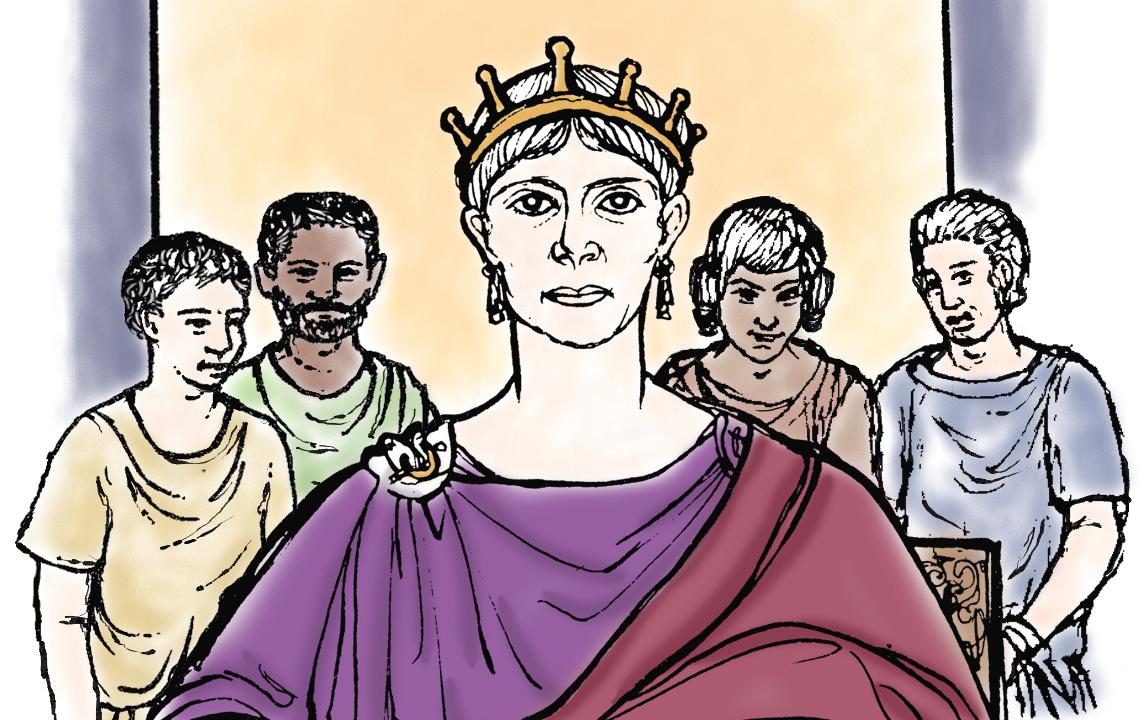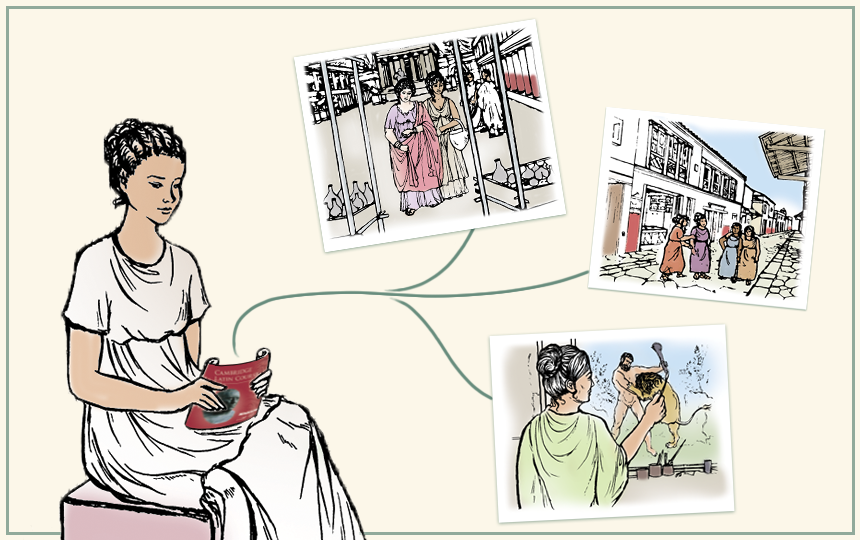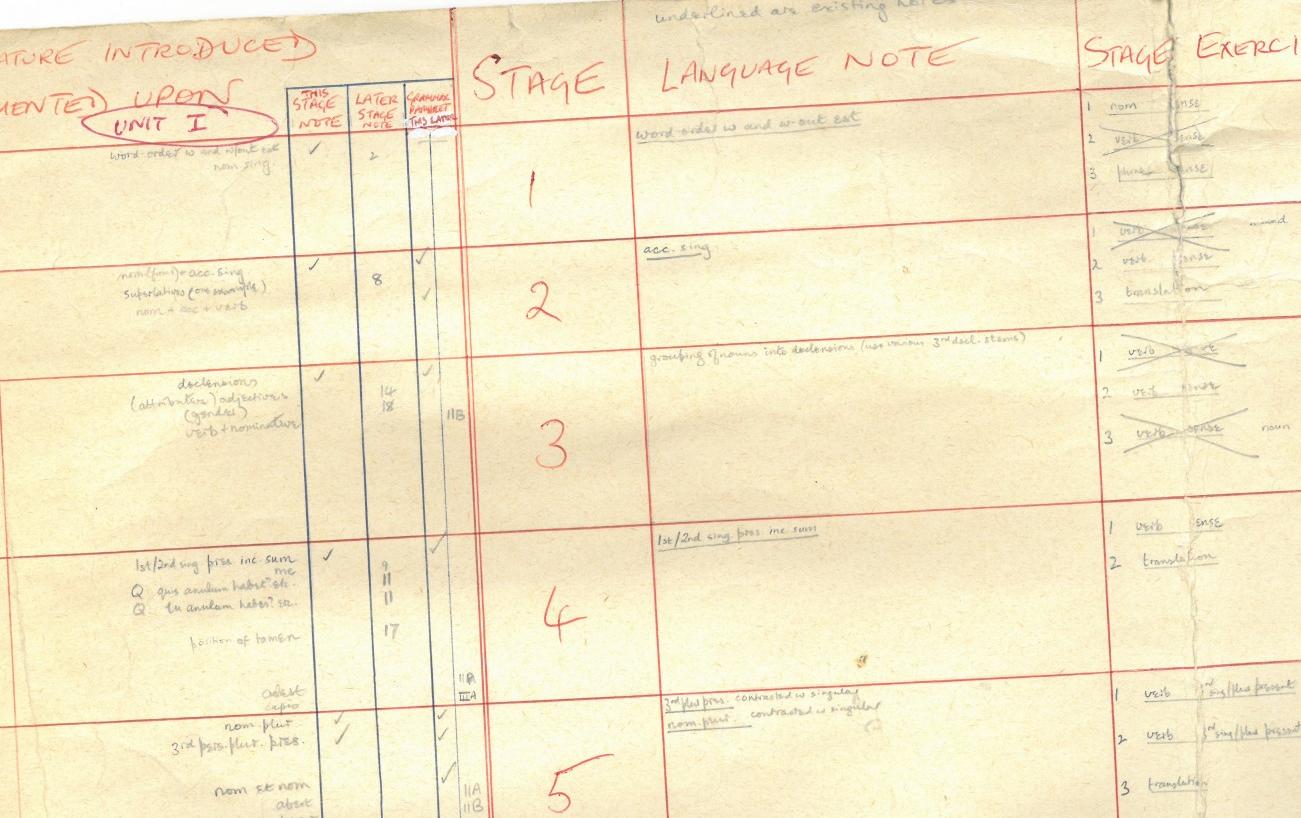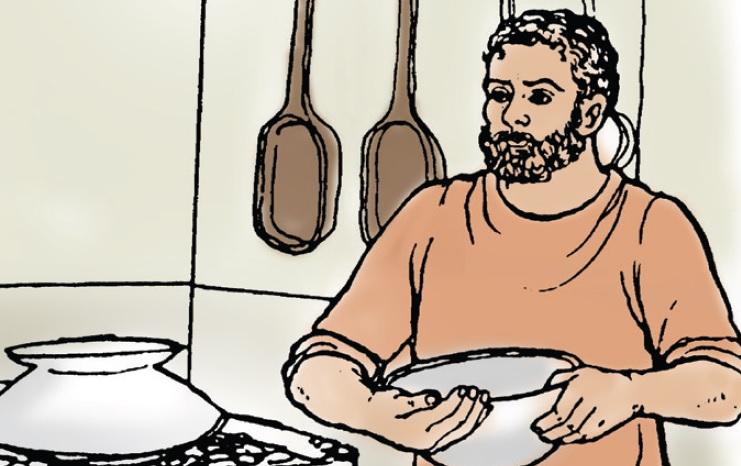In this post, Director Caroline Bristow explores how the CLC's carefully constructed linguistic plan has been adapted to respond to ever tighter teaching schedules and exam pressures.
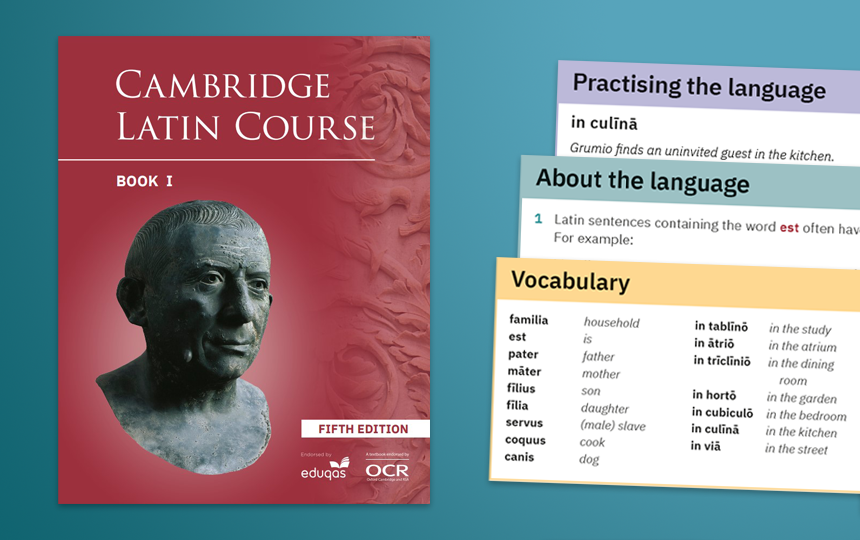
Submitted by Anonymous on Thu, 21/07/2022 - 16:31
A selection of images from the new edition of the Cambridge Latin Course, including the new About the Language and Practising the Language sections.
When CSCP undertook Caecilius is Listening research to inform plans for a new edition, by far the greatest concern for teachers was the difficulty in making best use of the CLC in seemingly ever-reducing teaching time, and how to ensure that students were supported in preparation for qualifications such as GCSE. A reading course like the CLC requires a substantial amount of material in the target language to be effective, potentially creating a tension between the pedagogy of the books and classroom targets, but we listened carefully to this feedback and resolved to adapt and re-organise content to better meet these needs.
The new edition will consist of four books rather than five; taking students from KS3 to KS4, that is from absolute beginner to GCSE standard. The vast majority of GCSE language content will be covered by about halfway through Book 4, with the latter half of the book helping students transition to reading authentic classical Latin texts. Those on a tight timetable need only complete three and a half books in full to prepare students for the language exam. The rest of Book 4 can be used to help comprehend GCSE set texts independently, as reading practice (glossing new grammatical features within vocabulary items where needed), or as the first step towards AS or A Level content.
The language scheme of the CLC was highly engineered from its conception. Dr John B Wilkins, an early linguistic consultant, designed learning materials which would be built up “according to a carefully designed grammatical plan. Significant patterns are rehearsed to the point that habits are formed in the learner” (Wilkins Teaching the Classical languages in Didaskalos 1969). The overall progression of the Course was painstakingly crafted so that each stage built in manageable steps on the competence developed in previous work. Every word, phrase, and grammatical concept was precisely placed for maximum impact and for maximum reinforcement through a number of encounters. Concepts were introduced in the order in which they were likely to be most easily understood by an English speaker, rather than based on their prevalence in classical texts. This meant that when students encountered more alien concepts or those which were more difficult for them to comprehend, they already had the confidence and the grounding in the language to support them in tackling these harder ideas.
Reviewing and improving such a scheme has been a daunting task. Change a single word in Book 1 and the impact might be felt in Book 4. New digital tools had to be developed just to help with mapping, planning and implementing the new scheme! We hope teachers and learners will benefit from these latest changes, including the earlier and heavily scaffolded introduction of the indirect statement. Vocabulary lists have also been reviewed to prioritise GCSE lists, alongside common Latin words, and words necessary for understanding the narratives. Vocabulary Checklists showing only words which appear on exam board specifications will be available for download separately.
The Practising the Language sections of each stage have undergone the biggest redesign since the books were first written. The new versions enable teachers to point students to specific exercises and material to meet their particular needs, whether this is to review past content, consolidate what has just been taught, or begin thinking about the next step in their understanding. Every Practising the Language now contains another, shorter story intended to consolidate the language features introduced in the Stage. The story is accompanied by three types of question designed to check understanding and encourage critical engagement with the story and the language:
- Explore the story contains comprehension questions
- Explore the language targets student understanding of linguistic features and, in later books, the literary effects of language choices
- Explore further invites students to offer critical analysis of the story, building literary criticism skills
This section also contains clear instructions directing students to pages where they can find more information or extra exercises targeting the language points.
The types of exercises previously found in Practising the language have become Reviewing the language, which is now found in the Language information section at the back of the book. This section contains additional exercises for each Stage. These have been designed to support consolidation of language information with clearly labelled and numbered exercises for ease of navigation. There are links to the places in the textbook where students can find additional information and tips for help with their work.
We hope that teachers will find the new edition even more helpful in preparing for GCSE exams, while maintaining the careful and enjoyable progression to language development provided in previous publications. As ever, Caecilius will be listening and ready to respond to feedback.



